

Edited and translated by Gao Yinan, People's Daily Online
Wang Qiang, 46, learnt beekeeping from his father when he was 16 years old. He has been a beekeeper for three decades. Honey bees are not domesticated and the beekeeper does not control the creatures. The bees are free to forage or leave as they desire. Bees usually return to the beekeeper's hive when the hive presents a clean, dark, sheltered abode.
Every morning Wang puts on his specially-made yellow clothing, which is kind of protective clothing consisting of veils, gloves, and suits and begins his job. Wang regards himself as the top commander of his bee army, which has expanded from 70 hives to more than 300 hives and each hive is home to 30-50 thousands bees.
He is responsible for assessing the health of the hive, checking for mite infestations, monitoring and treating the hive when health problems arise, and maintaining detailed records of health, medication administration, and honey production.
Because beekeeping is seasonal, there are busy times and slow times. During busy times of the year, beekeepers need to work at nights, on weekends, and in holidays and they have to work long hours during the warmer months, spending most of their time outdoors in variable weather conditions. However, during the off-season, there's much less work to be done, enabling the beekeeper to have much-needed time off.
Most people find beekeeping to be a relatively easy venture. Once the beekeeper is familiar with the needs of the hives, it's mostly of routine. The primary duty of a beekeeper is to keep hives healthy and productive so they are able to yield honey and related byproducts such as beeswax.
The bee industry is especially strong in countries such as China, Argentina, Turkey, and the United States. Beekeeping can be very profitable. Where there are flowers, there are beekeepers that use their wisdom to chase the blossoms and harvest.
 |
 Female soldiers in China-Russia joint drill
Female soldiers in China-Russia joint drill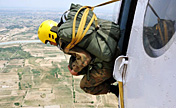 Lady officers complete Basic Air Borne course
Lady officers complete Basic Air Borne course Collective gay wedding held in Mexico City
Collective gay wedding held in Mexico City Best photos of week (July 8 - July 14)
Best photos of week (July 8 - July 14)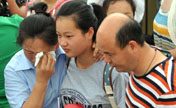 San Francisco crash survivors come back home
San Francisco crash survivors come back home  Hot tips to stay cool in steamy summer
Hot tips to stay cool in steamy summer 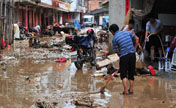 Aftermath of typhoon Soulik-triggered rainstorms
Aftermath of typhoon Soulik-triggered rainstorms Rape victim's mother wins labor camp lawsuit
Rape victim's mother wins labor camp lawsuit 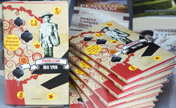 Mo Yan's work 'Change' hits Croatia's bookstore
Mo Yan's work 'Change' hits Croatia's bookstore People spend cool weekend at seashore
People spend cool weekend at seashore Top 5 themed restaurants in China
Top 5 themed restaurants in China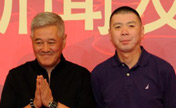 Feng Xiaogang to direct CCTV Spring Festival Gala
Feng Xiaogang to direct CCTV Spring Festival Gala Model in see-through dress
Model in see-through dress 10th China Changchun Int'l Automobile Expo
10th China Changchun Int'l Automobile Expo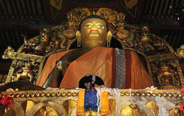 Tsurpu Monastery in SW China's Tibet
Tsurpu Monastery in SW China's Tibet